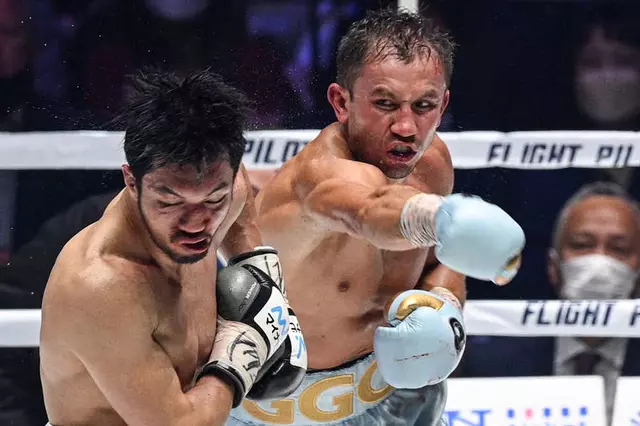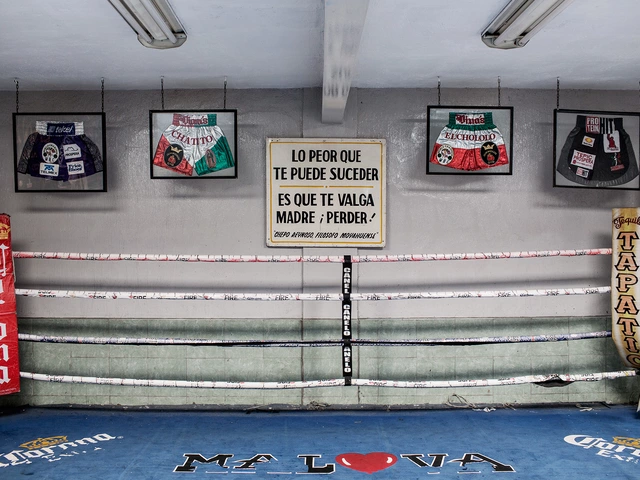Chasing the Dream: How Boxing Transforms Lives
There's something incredibly invigorating about stepping into a boxing ring. It's not just about the physical exertion, but also the mental challenge and the test of your courage. The adrenaline rush can be phenomenal, almost like leaping out of an airplane. Not that I have any personal experience jumping out of planes, you understand. Nope, my thrill of choice is entering the boxing ring, with my Dalmatian, Baxter, as my most enthusiastic cheerleader.
Imogen, my better half, has always been mildly amused by this interest of mine. She often quips that I bring the same intensity to my writing as I do to my boxing, which is a huge compliment coming from her. But you see, what most people forget is that boxing is not just about throwing punches. It’s poetry in motion, a mind-bending dance combat that tests strategy and resilience. Complex and demanding, I believe that there are few sports that require such a profound sense of discipline and determination.
Unboxing the Boxer: Crafting an Athlete
Boxing doesn't just happen. It's not some brutal, uncontrolled flurry of punches, as it's sometimes portrayed. Instead, it's a dance, choreographed down to the most detailed nuances. Each jab, each block, each hook is performed with precision. And that's just the physical part. The mental game plays an even bigger role. The study of your opponent, the anticipation of their next move, the ability to adjust on the fly, it's all part of the grand scheme. Boxing is as much a mind game as it is a blood and sweat sport.
Now, I wouldn't claim to be a professional, but my foray into this sensational sport has taught me more than I could ever have imagined. Like on one of those days, I remember I took one particularly hard punch from my sparring partner during practice. As I collected myself, the trainer said something I never forgot, "Zander, boxing is not about how hard you can hit, but how hard you can get hit and keep moving forward." I've applied this advice in many moments in my life, boxing or otherwise.
Float Like a Butterfly, Sting Like a Bee: The Boxing Basics
If I've piqued your interest and you wish to try out boxing for yourself, there are a few basic things to keep in mind. Balance is the foundation. Your stance should be steady, and your feet should always be in alignment with your punches. Hand-eye coordination is also crucial - lose sight of the incoming punch, and you could end up flat on the floor. One of the first things beginners learn is to keep their hands up to guard their face, trust me, it’s really important.
Then comes the footwork, the unseen star of the boxing world. You'd be shocked at how much your feet dictate the fight. They control your distance from your opponent, provide the power in your punch, and allow you to dodge and weave.
The Science and Art of Boxing: Beyond the Punches
To the untrained eye, boxing may just appear as an intense physical sport where the one who hits the hardest walks away victorious. Contrarily, at its core, boxing is a cerebral sport; there’s more science and strategy involved than you'd ever imagine. It requires a delicate balance of power, speed, endurance, and tactics; a perfect blend of controlled aggression and calm defensive measures.
It's similar to a game of chess, where every move has consequences, every misstep could cost you the game. One must continuously adapt and adjust, calculate and execute the right maneuvers at the right time. And after all the strategy, power, and tactics, ultimately, it comes down to heart, to your will to win. The sport of boxing sums up life beautifully in this way.
As for me, I don't see myself stepping into the professional boxing arena anytime soon. I'm happy keeping it as a hobby, fighting imaginary opponents in my Wellington backyard with Baxter in my corner. But, if you ever find yourself in New Zealand and fancy a friendly match, don't hesitate to look me up. We'll put on the gloves and have a friendly bout - just be warned, Baxter takes his cheerleading duties seriously!


